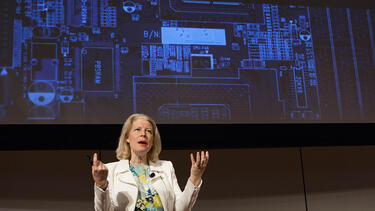Management in Practice
Does It Matter Where a Global Company Is Headquartered?
More important, says BG Srinivas of the information and communications technology company PCCW, is finding the right balance between global and local in each market.

Can the National Defense Be a Global Business?
Vivek Lall, the head of global strategy for General Atomics, says that the industry, responding to many of the same pressures as other businesses, is becoming increasingly globalized.

How Can Companies Take Responsibility for Major Accidents?
Naomi Hirose ’83, president of the Tokyo Electric Power Company (TEPCO), the operator of the Fukushima Daiichi nuclear power plant, discusses his company’s efforts since the 2011 tsunami and nuclear meltdown.
How Do You Market to Millennials?
If millennials haven’t yet reshaped your products and marketing, says Christine Barton of BCG, they will soon.

How Should Nonprofits Invest?
Sandra Urie ’85 of Cambridge Associates talks about helping clients find the right level of risk.

Will Openness and Transparency Strengthen Democracy in the EU?
HEC Paris's Alberto Alemanno on what the EU's commitment to openness means in practice.
What Does Global Mean for MasterCard?
To succeed as a global company, CEO Ajay Banga says, MasterCard strives for uniformity in some respects and diversity in others.
Can a New York Burger Make It in Dubai?
Shake Shack’s Danny Meyer discusses the challenges of international expansion.

Are the Startups Coming for Your Business?
Internet entrepreneur Kevin Ryan discusses the profound effect that new ventures are having on some of the world’s largest companies.

Five Lessons from the 2015 Customer Insights Conference
The rise of the millennial generation and the explosion of mobile technology have permanently changed the landscape for marketers.
